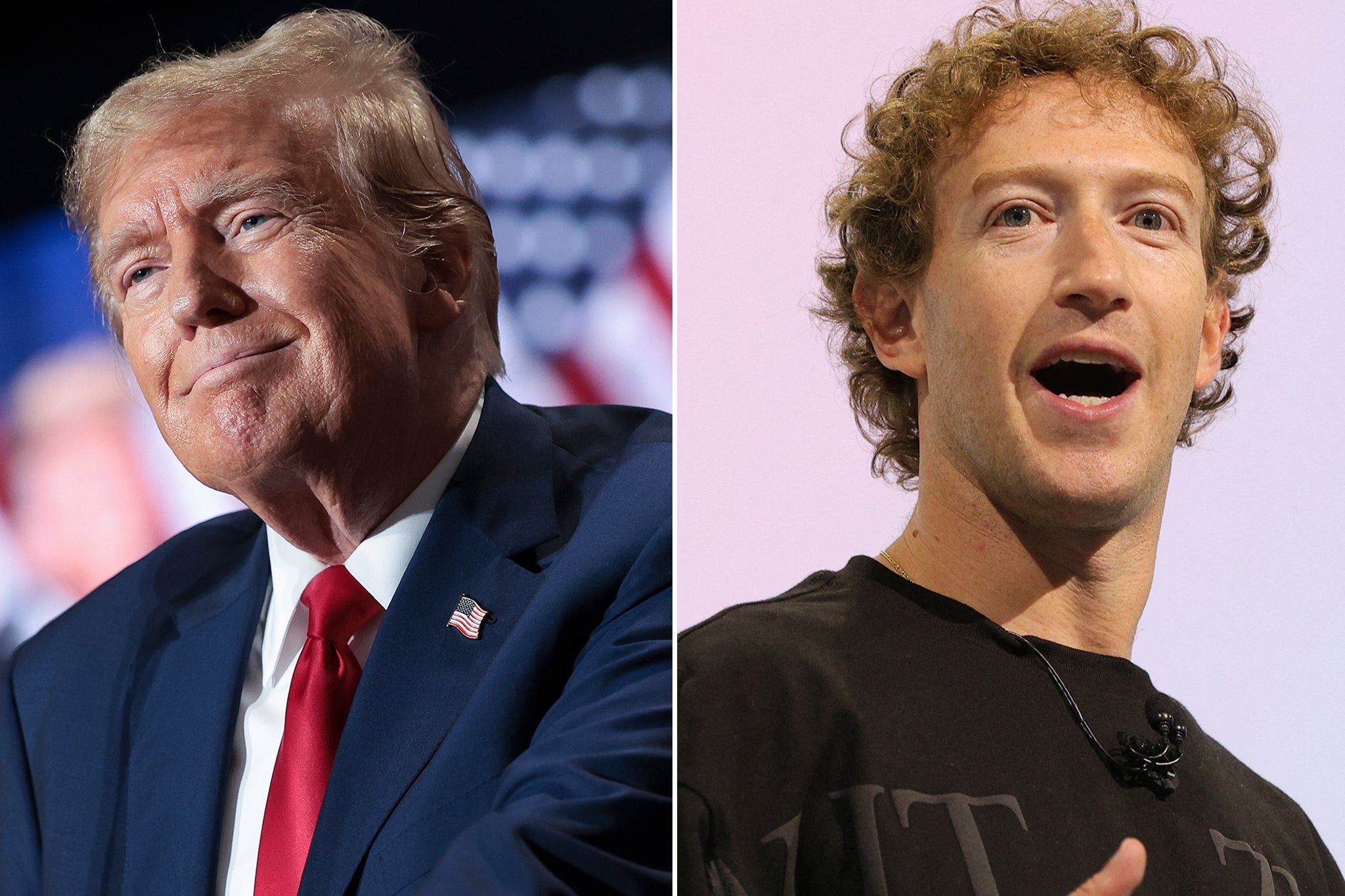The Zuckerberg-Trump Era: Implications For Facebook And Beyond

Table of Contents
Facebook's Role in the 2016 US Presidential Election and Beyond
The 2016 US Presidential election became a defining moment, highlighting the powerful influence of social media, particularly Facebook, on electoral processes. The Zuckerberg-Trump era’s impact on Facebook's role is multifaceted and continues to unfold.
Cambridge Analytica Scandal and Data Privacy Concerns
The Cambridge Analytica scandal exposed a significant vulnerability in Facebook's data handling practices. This scandal, where user data was harvested without consent and used to target political advertising, sparked intense global debate and raised serious concerns about data privacy. The fallout led to increased scrutiny of data privacy regulations worldwide, including the implementation of GDPR (General Data Protection Regulation) in Europe and CCPA (California Consumer Privacy Act) in the US. The long-term impact on user trust and Facebook's reputation remains a significant challenge.
- Loss of user confidence: Millions of users questioned Facebook's commitment to protecting their data.
- Stricter data protection laws: Governments worldwide responded with stricter regulations, impacting Facebook's business model.
- Increased regulatory oversight: Facebook now faces increased scrutiny from regulatory bodies globally.
Spread of Misinformation and Foreign Interference
The 2016 election also exposed the ease with which misinformation and propaganda could spread on Facebook. Foreign actors exploited the platform to manipulate public opinion through targeted advertising and the dissemination of fake news. This highlighted Facebook's struggles to effectively combat harmful content and protect the integrity of its platform. The platform's algorithms, initially designed to maximize engagement, inadvertently amplified divisive rhetoric and conspiracy theories.
- Increased efforts in content moderation: Facebook invested heavily in content moderation tools and teams.
- Fact-checking partnerships: Collaborations with fact-checking organizations were established to identify and flag false information.
- Algorithm adjustments: Facebook adjusted its algorithms to prioritize authoritative news sources and reduce the spread of misinformation.
Political Advertising and Transparency Issues
The lack of transparency in political advertising on Facebook fueled concerns about accountability and the potential for manipulation. The ability to target specific demographics with tailored political messages raised ethical questions about the influence of targeted advertising on election outcomes. This led to intense debates about the regulation of political speech on social media platforms.
- Calls for stricter regulations: Many advocated for stricter regulations on political advertising, requiring greater transparency and disclosure.
- Increased disclosure requirements: Facebook introduced stricter disclosure requirements for political ads.
- Independent audits: Calls for independent audits of Facebook's political advertising practices grew louder.
The Impact on Political Discourse and Polarization
The Zuckerberg-Trump era significantly impacted political discourse and exacerbated existing societal divisions.
Echo Chambers and Filter Bubbles
Facebook's algorithms, while designed to personalize user experiences, contributed to the formation of echo chambers and filter bubbles. Users were primarily exposed to information confirming their existing beliefs, reinforcing biases and limiting exposure to diverse perspectives. This resulted in increased political polarization and made constructive dialogue increasingly challenging.
- Algorithm modifications to promote diverse viewpoints: Facebook attempted to modify its algorithms to expose users to a wider range of viewpoints.
- Community building initiatives: Efforts were made to promote cross-partisan dialogue and community building.
- Fact-checking initiatives: Fact-checking initiatives aimed to combat the spread of misinformation within echo chambers.
Rise of Populism and Nationalist Movements
Social media, particularly Facebook, played a significant role in the rise of populist and nationalist movements globally. The platform amplified divisive rhetoric, conspiracy theories, and anti-establishment narratives, contributing to the erosion of trust in traditional institutions.
- Increased scrutiny of online political campaigning: Greater scrutiny was placed on online political campaigning tactics.
- Efforts to combat hate speech: Facebook implemented policies and tools to combat hate speech and incitement to violence.
- Promotion of media literacy: There was a growing focus on promoting media literacy to help users critically evaluate online information.
Censorship Debates and Free Speech Concerns
The efforts to combat misinformation and hate speech on Facebook sparked intense debates about censorship and free speech. Balancing the need to protect users from harmful content with the principle of free expression became a central challenge.
- Ongoing discussions on platform governance: Discussions continued regarding platform governance and the role of social media companies in regulating content.
- Independent oversight bodies: Calls for independent oversight bodies to monitor content moderation practices increased.
- International collaboration: International collaboration became increasingly important in establishing consistent standards for content moderation across different cultures and contexts.
Long-Term Implications for Social Media and Democracy
The Zuckerberg-Trump era has far-reaching implications for the future of social media and its relationship with democracy.
The Future of Regulation and Oversight
The need for stronger regulations and oversight of social media platforms is undeniable. International cooperation is crucial to combat misinformation and establish consistent standards for content moderation across borders. However, striking a balance between regulation and innovation remains a significant challenge.
- Global regulatory frameworks: The development of global regulatory frameworks for social media is essential.
- Increased collaboration between governments and tech companies: Greater collaboration between governments and tech companies is needed to address the challenges posed by social media.
- Independent oversight bodies: Independent oversight bodies are necessary to ensure accountability and transparency.
The Role of Media Literacy and Critical Thinking
Empowering citizens with media literacy skills is crucial to navigating the complex information landscape of the digital age. Developing critical thinking skills enables individuals to evaluate the credibility of online sources and engage in informed online participation.
- Educational programs: Investing in media literacy education is vital for empowering citizens.
- Public awareness campaigns: Public awareness campaigns can help individuals identify and avoid misinformation.
- Promoting critical thinking skills: Encouraging critical thinking skills is crucial for responsible online engagement.
Conclusion
The Zuckerberg-Trump era represents a watershed moment, highlighting the profound influence of social media on politics and society. The implications of this period extend far beyond Facebook, impacting the future of democracy, political discourse, and data privacy. Understanding the challenges and complexities of this era is crucial for navigating the evolving landscape of social media and its role in shaping our world. We must continue to critically examine the "Zuckerberg-Trump Era" and its ongoing consequences to promote responsible innovation and protect the integrity of democratic processes. Further research and open dialogue are essential to address the complex issues arising from the intersection of technology, politics, and society. The ongoing impact of this era requires continued vigilance and proactive measures to mitigate the risks and harness the potential benefits of social media responsibly.

Featured Posts
-
 Legendary Guitarist Rick Derringer Dead At Age 77
May 29, 2025
Legendary Guitarist Rick Derringer Dead At Age 77
May 29, 2025 -
 Brisbane Mayors Controversial Decision Q Music Loses Support Following Musician Criticism
May 29, 2025
Brisbane Mayors Controversial Decision Q Music Loses Support Following Musician Criticism
May 29, 2025 -
 Successful Space X Falcon 9 Launch 27 Starlink Satellites Added
May 29, 2025
Successful Space X Falcon 9 Launch 27 Starlink Satellites Added
May 29, 2025 -
 Prediksi Cuaca Besok 24 Maret 2024 Di Jawa Timur
May 29, 2025
Prediksi Cuaca Besok 24 Maret 2024 Di Jawa Timur
May 29, 2025 -
 Toothless And Red Death Size Difference Revealed In New How To Train Your Dragon Poster
May 29, 2025
Toothless And Red Death Size Difference Revealed In New How To Train Your Dragon Poster
May 29, 2025
